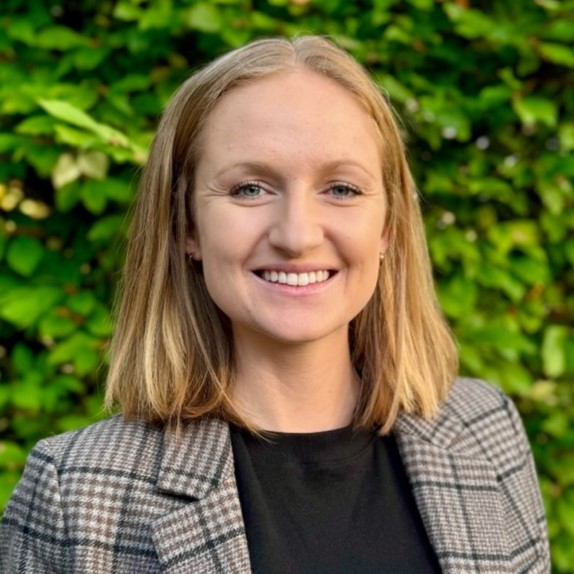Four Questions for MSH’s Eliza Love about Climate and Health
Four Questions for MSH’s Eliza Love about Climate and Health

A recent event on the sidelines of the United Nations General Assembly (UNGA) launched a new report, Time to Adapt: Accelerating Climate Adaptation for Health Equity—Catalyzing Solutions for Community Action. The report—produced by Foundation S and the Africa-Europe Foundation’s think tank, the Collective Minds Climate Council, with assistance from Management Sciences for Health (MSH)—highlights the connection between climate change and health and underscores the need to support locally led solutions for stronger health systems in the face of climate change. MSH Technical Advisor for Health Financing and Policy Eliza Love, who was instrumental in developing the report, reflects on her week at UNGA, the findings of the report, how communities are central to strengthening health systems to cope with the effects of climate change, and how local communities can lead the way.
What was your overall impression of the events at UNGA?
Eliza: I was really struck by the fact that the intersection of climate and health is front and center in the global development discourse right now. Between UNGA and Climate Week NYC, there were hundreds of events focused on the two topics. Throughout the week there wasn’t a single event I attended that didn’t focus on or call out the intersection between the two. It was energizing to see such attention given to such a critical and timely topic. The challenge now is to capitalize on that energy and hold each other accountable to turn all of those conversations into real action.
What do you think is the most common misconception people have around climate change as it relates to global health?
Eliza: For a long time, it seemed like people were talking about climate and health as two separate issues. But the two are intricately intertwined, and we must acknowledge that fact so we can work toward cross-cutting solutions. In the words of Tedros [Adhanom Ghebreyesus, Director-General of the World Health Organization], “the climate crisis is a health crisis.” Not only that, but the climate crisis is also a housing crisis, an education crisis, a nutrition crisis, an economic crisis—all factors that heavily influence health.
Historically, climate and health have been siloed in approaches to funding, policy, and interventions. Less than 5% of total global climate adaptation financing was dedicated to health, and the amount of official development assistance for health with a focus on climate is negligible. But an investment in mangrove restoration, which prevents rising sea levels from flooding farmlands and ensures a sustainable source of nutritious foods, is an investment in health. And an investment in the local health care workforce to better respond to evolving disease patterns is a climate-smart investment.
The sheer volume of discussions focused on the intersection of climate and health at UNGA and Climate Week left me optimistic that we’re starting to break down those silos.
What is a data point or piece of information in the report that has stuck with you?
Eliza: Justice is at the center of the climate and health crisis. A data point that has stuck with me that underscores this issue is that the African continent constitutes 17% of the world’s population and accounts for less than 4% of global greenhouse gas emissions but has experienced an estimated 35% of global mortality due to climate-related disasters.
Low- and middle-income countries experience disproportionate levels of exposure to climate risks despite contributing the least to global warming, unjustly widening existing health and socioeconomic inequities. The cumulative effects of climate change threaten to reverse years of poverty reduction efforts. Strengthening health resilience to climate change is a matter of justice.
MSH applies a lens of systems thinking to tackling complex challenges like this, and we’ve seen consistently that solutions are most effective and sustainable when led by local communities. Can you share an example?
Eliza: Yes, local actors understand best their communities’ specific contexts and are best placed to develop the most appropriate solutions. Many examples of this are highlighted in the report. As a member of MSH’s Health Economics and Financing team, I am particularly interested in ways to not only increase the quality and quantity of financing but also channel much-needed financing for climate to lower levels.
Kenya has developed an innovative approach to doing so. Kenya’s County Climate Change Fund is a unique mechanism for shifting climate adaptation financing to local governments and strengthening communities’ roles in managing and using funds to increase climate resilience. Each county receives a set contribution of 1–2% of the annual local government budget, which is managed by community-elected representatives and provides predictable funding for community-driven adaptation solutions.
Initiatives like this, where communities are at the head of decision making, can help to ensure that financing is channeled toward solutions that are contextually relevant, maximally effective, and sustainable.